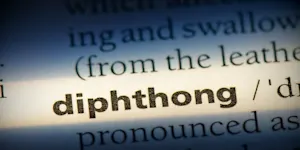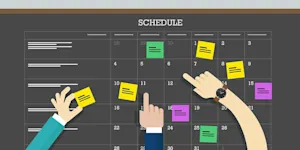What Makes This Word Tick
"Ricochet" is one of those words that glides off the tongue, reflecting its meaning almost perfectly. A ricochet is what happens when an object, often something fast like a bullet or a pebble, bounces off a surface and changes direction unexpectedly. The unpredictable path of a ricochet captures both the thrill of chance and the potential for unexpected outcomes.
If Ricochet Were a Person…
Imagine Ricochet as someone you’d love to have at parties: lively, unpredictable, and capable of turning any conversation in a whole new direction. This person is quick on their feet, always ready to deflect negativity with a charming joke or insightful comment that leaves everyone looking around in wonder.
How This Word Has Changed Over Time
Originally used predominantly in military contexts to describe the bouncing paths of projectiles, "ricochet" has expanded its usage over time. In modern parlance, it is often used metaphorically to describe situations where actions have unintended or rebound consequences, much like a decision that sends ripples through every aspect of life.
Old Sayings and Proverbs That Use Ricochet
While there aren't age-old proverbs featuring the word "ricochet," you might hear a sharp shooter say, "Watch the ricochet!" as a friendly warning. This embodies the age-old wisdom of minding the consequences of your actions, a theme prevalent in many traditional sayings.
Surprising Facts About Ricochet
Did you know that ricochets can happen not just with solids like bullets or stones, but also with sound waves? Yes! Sound can ricochet within spaces, creating echoes that are both eerie and fascinating. It’s a reminder that even in the world of sound, paths can be unpredictable.
Out and About With This Word
In everyday life, we use "ricochet" to describe more than just literal bouncing objects. Conversations, ideas, and even trends can ricochet from one person to another, changing direction as they go. It’s the perfect word for life’s little unpredictabilities.
Pop Culture Moments Where Ricochet Was Used
In the world of pop culture, "ricochet" often pops up in action-packed films and literature, capturing moments where an object defies its path and creates unexpected drama. Think about those pivotal moments in action movies when a well-aimed shot doesn’t quite hit its mark and instead leads to an even more thrilling chain of events.
The Word in Literature
In literature, "ricochet" is a tool to describe movement and chaos, often used to build suspense or illustrate action scenes. Authors have employed it to add dynamic visuals in narratives, much like its usage in "For Whom the Bell Tolls" by Hemingway, where the unpredictable nature of war is mirrored in the unpredictable path of a ricochet.
Moments in History with Ricochet
The American Civil War was notorious for tales of ricocheting bullets. In chaotic battlefield conditions, ricochets added an element of unpredictability, capturing the essence of warfare's chaotic nature. The term has since become a metaphor for the unexpected consequences that can result from any conflict or decision.
This Word Around the World
Around the globe, the concept of ricochet translates into different languages, sometimes with unique flair. In French, from which we borrow the word, "ricochet" is pronounced a bit more capriciously, aligning well with its lively nature. Cultures that emphasize storytelling might use their equivalent of "ricochet" to describe the unexpected turns in a good tale.
Where Does It Come From?
The word "ricochet" finds its origins in French, first appearing in the 18th century. It's believed to be derived from the earlier word "ricocher," which relates to the skipping of stones across water—a much milder but equally captivating image of movement and change in direction.
How People Misuse This Word
Sometimes "ricochet" gets misused when someone means "rebound" or even "recoil." Each involves a change in direction, but a true ricochet suggests a more unexpected, almost whimsical change in course.
Words It’s Often Confused With
Rebound: While both involve a return or bounce, "ricochet" implies a more unpredictable, spirited change in direction.
Recoil: Typically refers to the backward movement after impact, like the kickback of a gun, rather than a sideways bounce.
Bounce: A simpler term that covers any upward movement after impact, but lacks the connotation of unpredictability inherent to a ricochet.
Additional Synonyms and Antonyms
For those looking to expand their vocabulary, synonyms include "rebound," "carom," and "glance." On the flip side, antonyms might be "strike" or "penetrate," as these imply direct contact or impact without the unpredictable change in direction.
Want to Try It Out in a Sentence?
Here’s a fun example: "She watched the pebble ricochet off the pond’s surface, her heart leaping with each unexpected skip." This captures not just the physical action but also the emotional spark that a good ricochet can inspire.
















